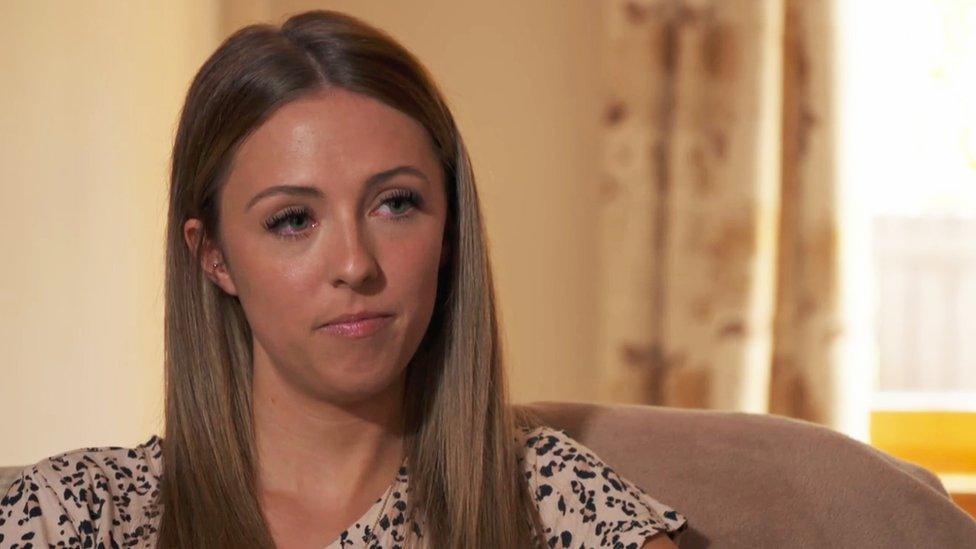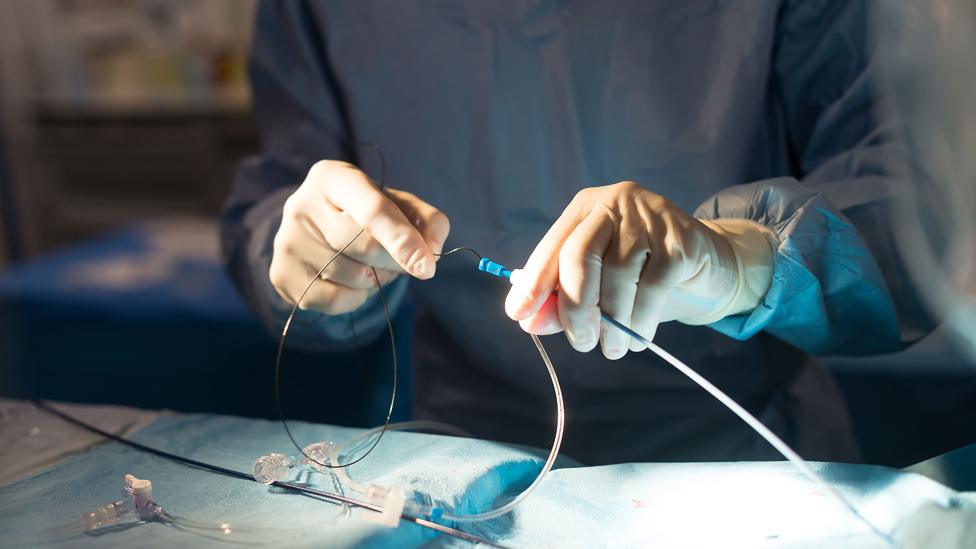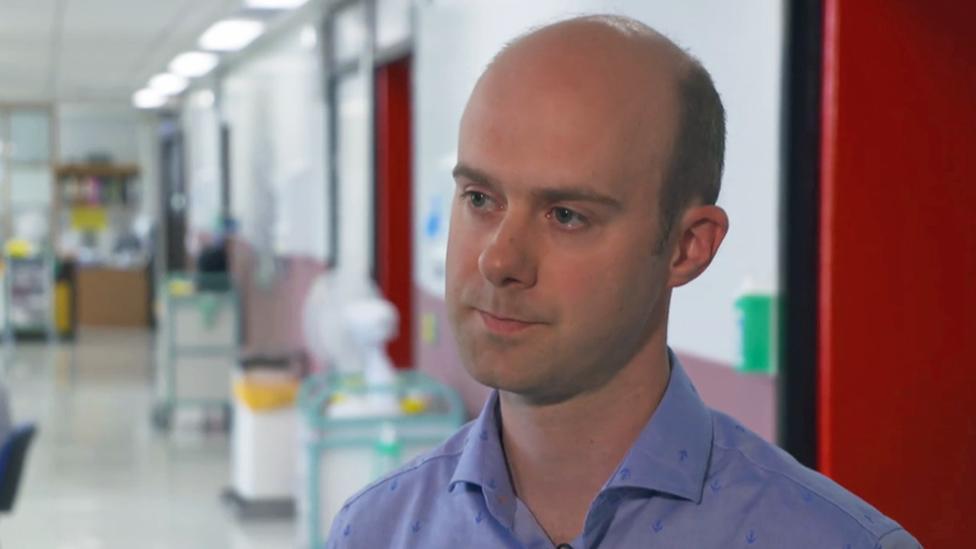'I didn't know young people could have a stroke'
- Published

Mollie Docherty was shocked to learn she had suffered a stroke
When Mollie Docherty woke up one Sunday morning feeling "a bit rough" after a night with friends, she didn't think it was anything out of the ordinary.
Mollie, who was then aged 23, thought she would "sleep it off" for a couple of hours.
But when she went downstairs to tidy up, she felt a sharp pain down the side of her face.
"I looked in the mirror and everything seemed okay," she recalled.
"But then it was like a flick of a light switch. Everything on the right-hand side seemed to go.
"I became very limp, I was falling into walls; I couldn't keep myself up and I was feeling very dizzy. I collapsed to the floor in the hallway."

Campaigners want thrombectomy to be available in Scotland
She realised something serious had happened and called her next-door neighbour. But with her speech affected, all she could do was cry down the phone.
Paramedics were called out, but the tests showed nothing unusual. They then called a senior consultant at Dundee's Ninewells Hospital, who told them to bring Mollie in straight away.
More tests and an emergency CT scan were also inconclusive, but the consultant believed Mollie was having a stroke.
'I associated it with old people'
She was given thrombolysis, a clot-busting drug treatment which needs to be delivered swiftly to give patients the best chance of recovery.
It was only the following day that an MRI scan confirmed Mollie had a blood clot in the back of her brain.
"That was a bit of a shock; I was obviously naive to the fact it happened to young people," she said.
"I just associated it with old people and didn't really understand."

Dr Matt Lambert said quick treatment was vital for a patient's recovery
Dr Matt Lambert, a stroke consultant at Dundee's Ninewells Hospital, says that the quicker thrombolysis is delivered "the more likely the patient is to recover from the stroke to a degree where they can live independently at home in the future".
After the shock of discovering she had suffered a stroke, Mollie, from Dundee, spent two weeks at Ninewells receiving daily physiotherapy, followed by six weeks in a brain injury unit.
"The movement in my arms and legs came back quite quickly, but the fine movement in my fingers and toes took about three months to come back," she recalled.
"It was a long, long time, quite frustrating."
Stroke care targets
A new report from the Scottish Stroke Care Audit, external has found that the number of patients receiving "appropriate care" rose from 65% in 2017 to 68% last year - but still fell short of the 80% target set by the Scottish government.
A total of 9,641 stroke patients were admitted to Scottish hospitals in 2018, with an additional 1,085 seen at neurovascular (TIA) clinics.
The audit found that only one health board - NHS Ayrshire and Arran - was close to the 80% performance target.
Significant improvements were recorded at three health boards - Lanarkshire, Tayside and Dumfries & Galloway. The lowest figure, 48%, was recorded in the Highlands.
The audit also said patients may need to wait "several years" before a key life-changing treatment becomes available in Scotland, while access to the procedure is growing in England and most of Europe.

Thrombectomy is an operation which physically removes a blood clot from the brain through an artery.
The audit estimates that between 600 and 800 patients each year could benefit from the treatment.
"If we could treat these patients, about 300 would have reduced disability and over 100 would avoid dependency on others and the need to live in a nursing home," it said.
Professor Derek Bell, president of the Royal College of Physicians of Edinburgh, said: "We are pleased that the Scottish government have started the process of planning a thrombectomy service.
"However, we would urge that resources are made available to ensure there are no avoidable delays in its implementation."
Andrea Cail, director of the Stroke Association in Scotland, highlighted the "significant, unwarranted variations" in care provision and the absence of comprehensive stroke centres across the country.
"The evidence shows that re-shaping stroke services and creating hyper-acute stroke units (HASUs) with the best equipment and experts in one place can save lives, reduce disability and result in greater cost effectiveness for our health and social care services," she added.
'Significant progress'
Chest Heart and Stroke Scotland, the country's largest stroke charity, wants to see a deadline set for the launch of the thrombectomy service.
Chief executive Jane-Claire Judson said: "The benefits of thrombectomy have been known since 2015. We can't wait several years. It will mean thousands of people will be more disabled by their stroke simply because they live in Scotland.
"It's time that the Scottish government stopped playing catch-up on stroke care."
A Scottish government spokesperson said: "Over the past 10 years, the number of people dying from stroke has decreased by 42%.
"This is significant progress but we want to go further. We continue to implement our Stroke Improvement Plan, which sets out the priorities and actions to deliver improved prevention, treatment and care for all people living in Scotland who are affected by stroke."